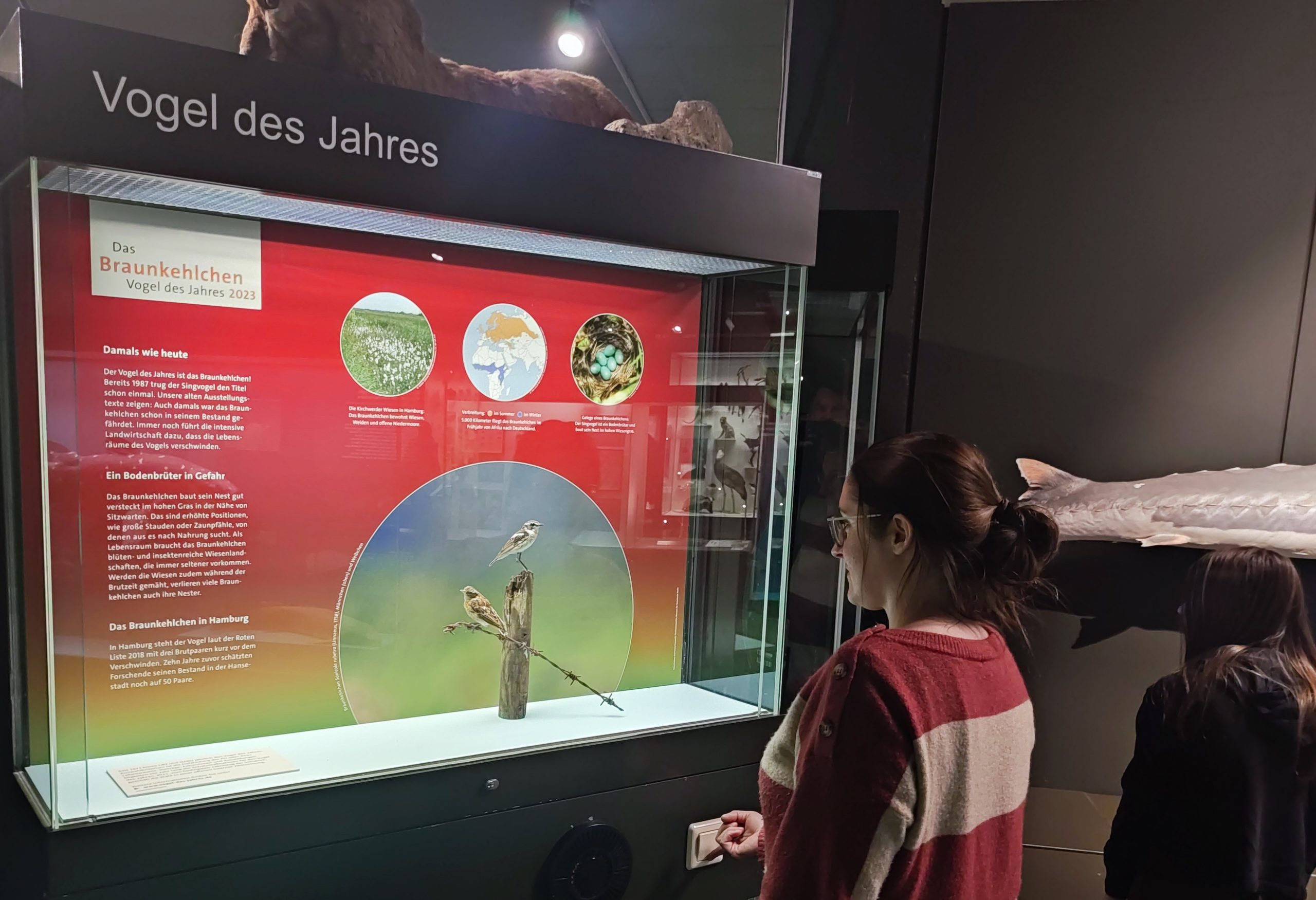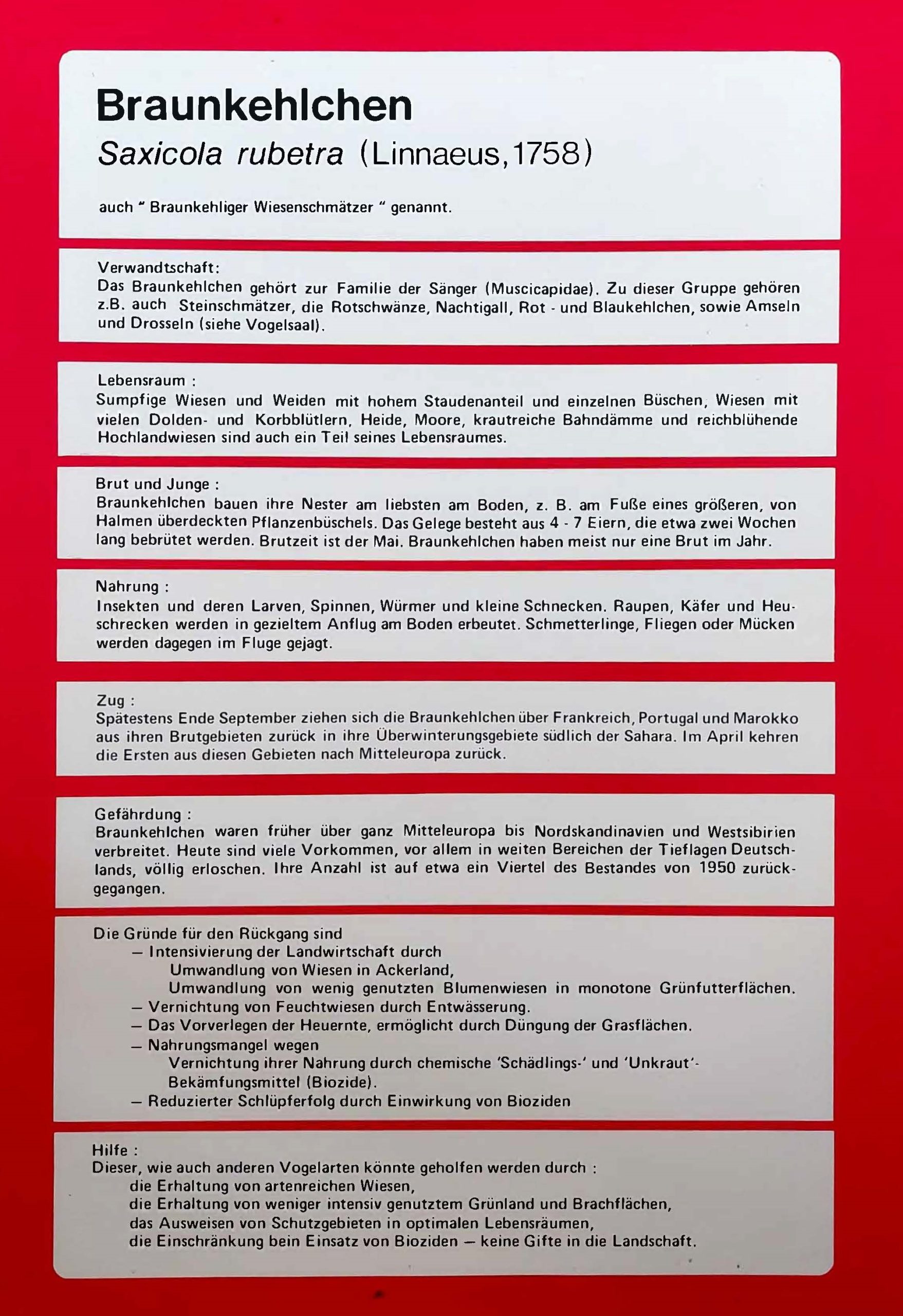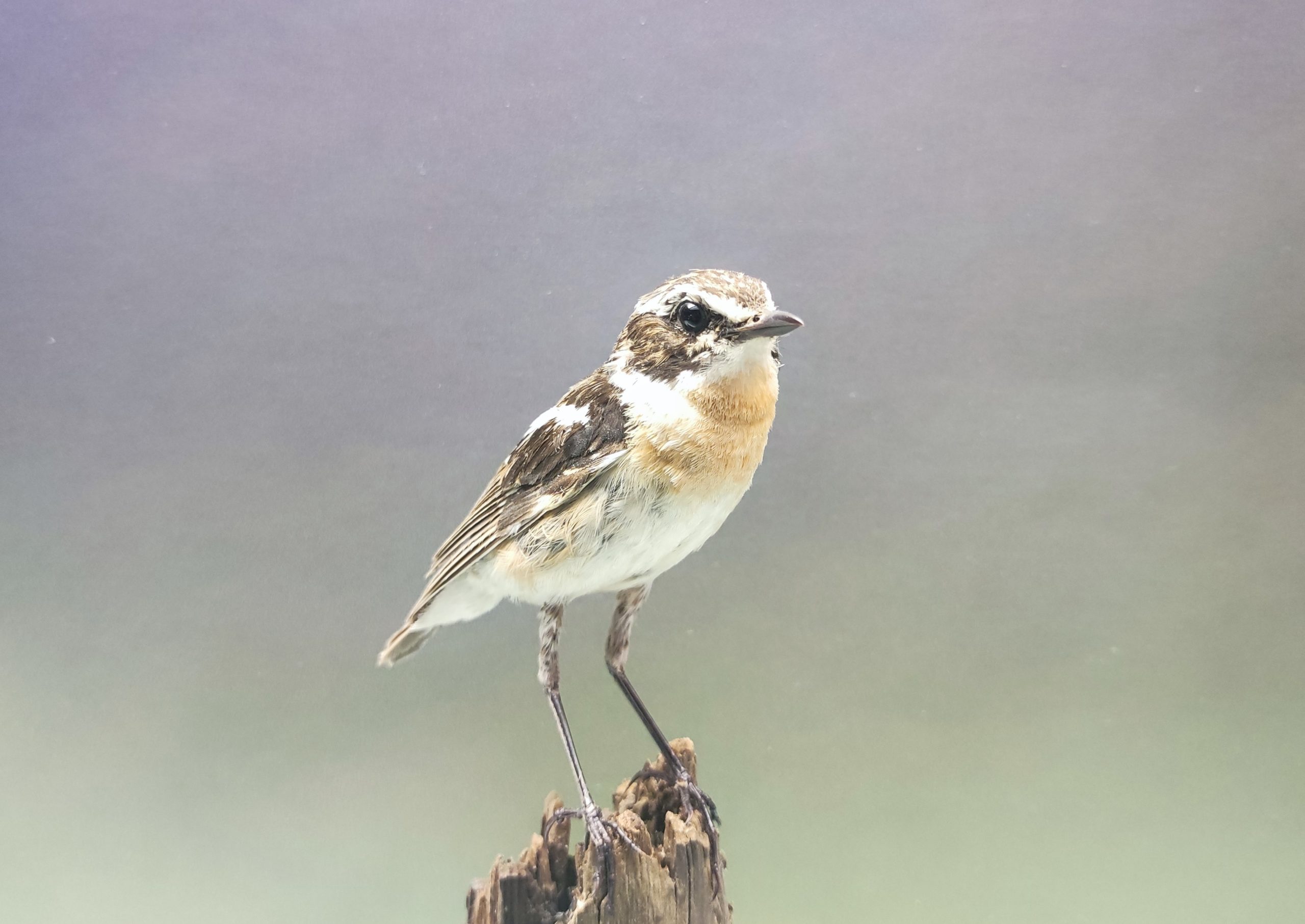The Whinchat moves to the Hamburg Museum of Nature
 Under the display case we find a switch: if you press here, you are rewarded with the song of the whinchat. © LIB, Steinkröger
Under the display case we find a switch: if you press here, you are rewarded with the song of the whinchat. © LIB, Steinkröger
Once again it snatched the bird crown: 36 years ago, the whinchat received the most votes in the NABU competition. This year, as in 1987, we honour the Whinchat and at the same time want to draw attention to the threats to our Bird of the Year 2023 with our showcase.
Last year, the whinchat received by far the most votes in the election for Bird of the Year 2023. More than 135,000 people took part in the vote, which aims to draw attention to the threats to native bird species. With the showcase in the zoological exhibition, we want to bring these issues even more to the public’s attention. However, a direct comparison with the information board from 36 years ago reveals that little has changed: Little has changed.
 The original from the then Zoological Museum in Hamburg from 1987, warning of the same dangers as in the current display case in the Museum der Natur Hamburg. © LIB
The original from the then Zoological Museum in Hamburg from 1987, warning of the same dangers as in the current display case in the Museum der Natur Hamburg. © LIB
Then as now, intensive agriculture is making life difficult for the Whinchat: more and more habitats and potential breeding sites are giving way to farmland, so that we can observe it in nature less and less often. As a ground-breeding bird, it needs flower- and insect-rich meadow landscapes with shrubs or fence posts where it can spot food. These are landscapes that are becoming increasingly rare to find in their pristine form.
 The male whinchat is the focus here. The female specimen can also be found in the display case. © LIB, Steinkröger
The male whinchat is the focus here. The female specimen can also be found in the display case. © LIB, Steinkröger
In Hamburg, the Whinchat has been on the Red List of endangered bird species since 2018 and is also considered critically endangered throughout Germany. While researchers estimated the population at 50 pairs around ten years ago, only about three breeding pairs remain in Hamburg today. At the museum we see the Whinchat all year round until the next Bird of the Year is chosen. Until then, we can also listen to its song by pressing a button.


